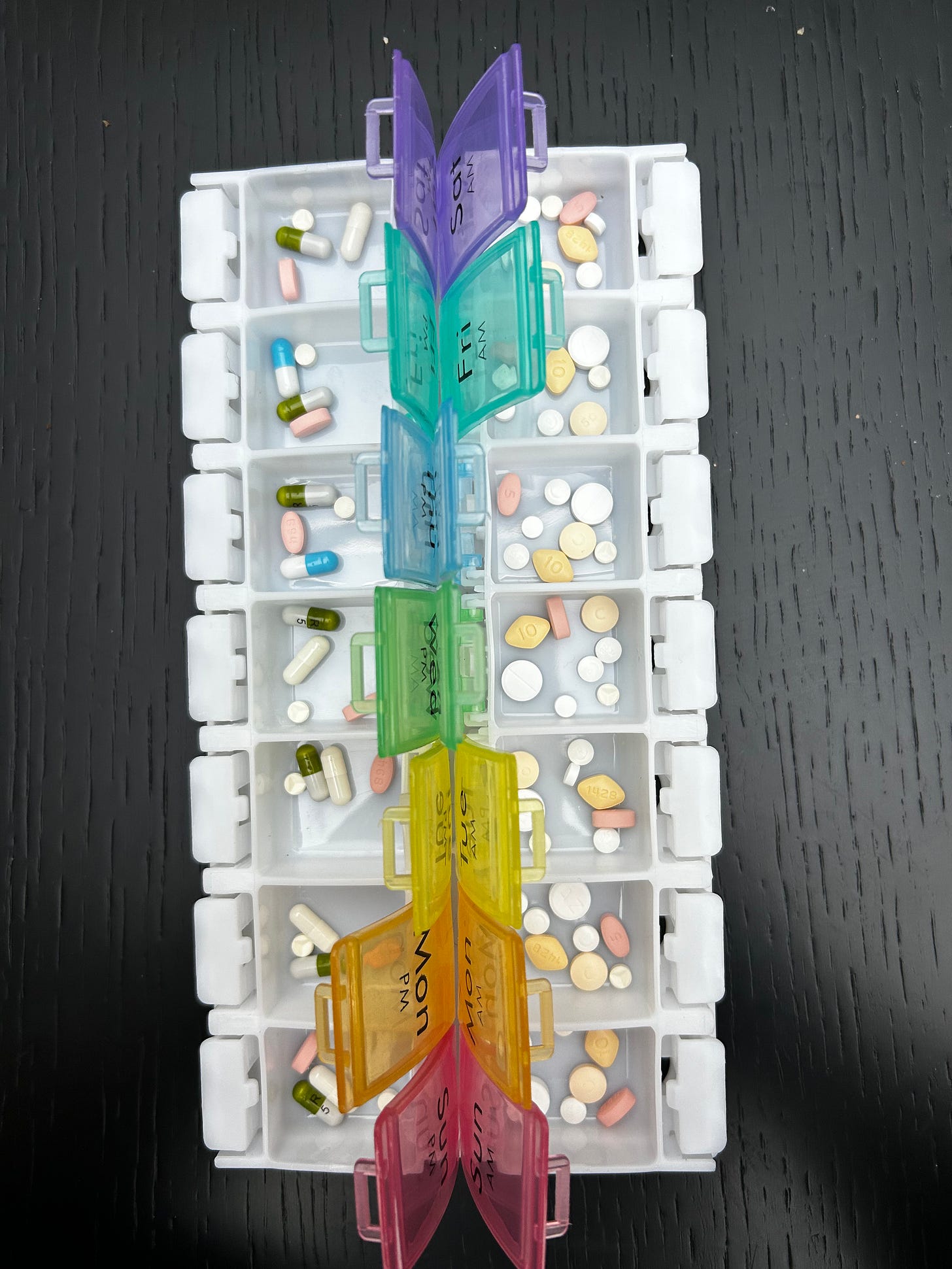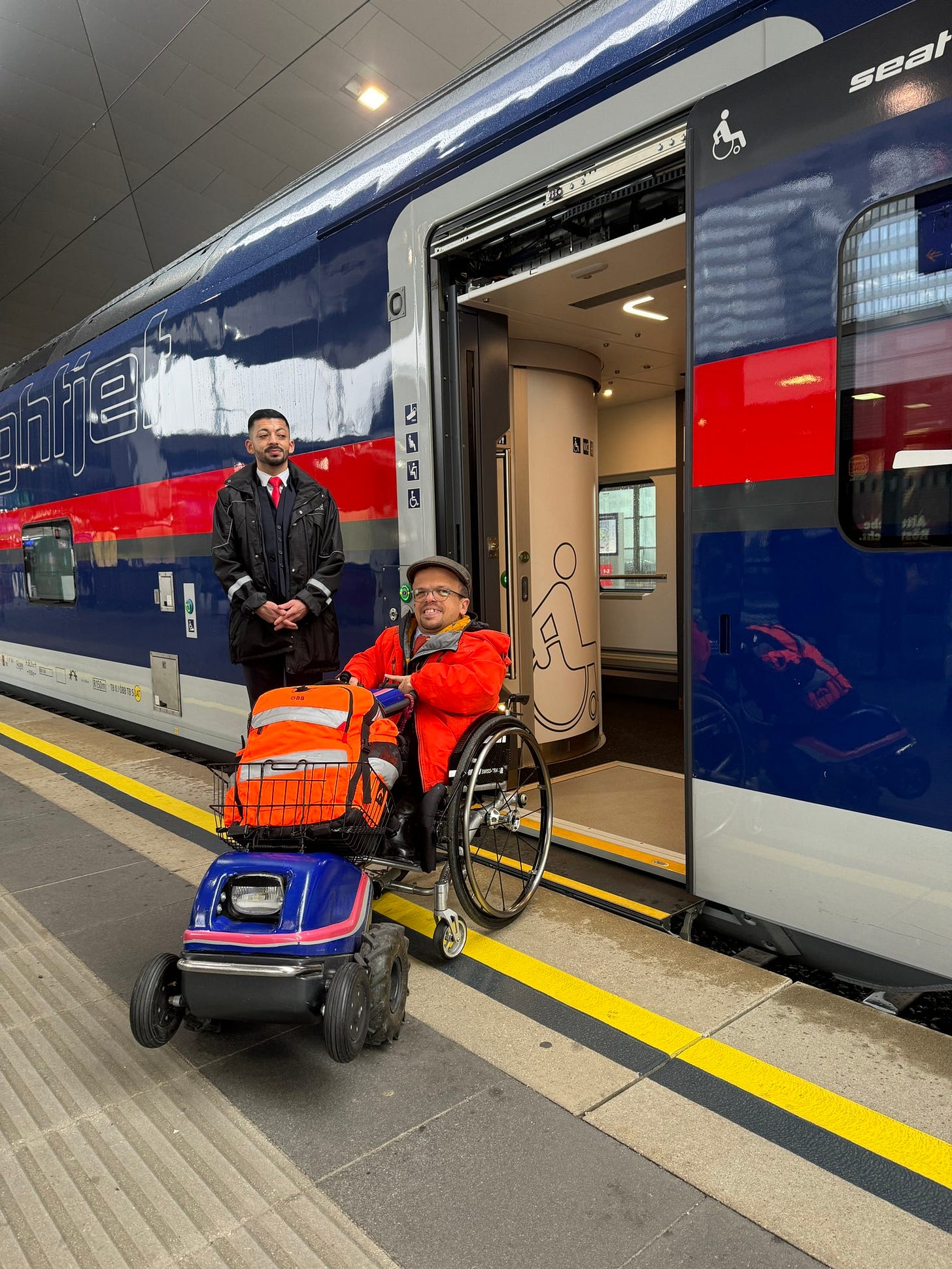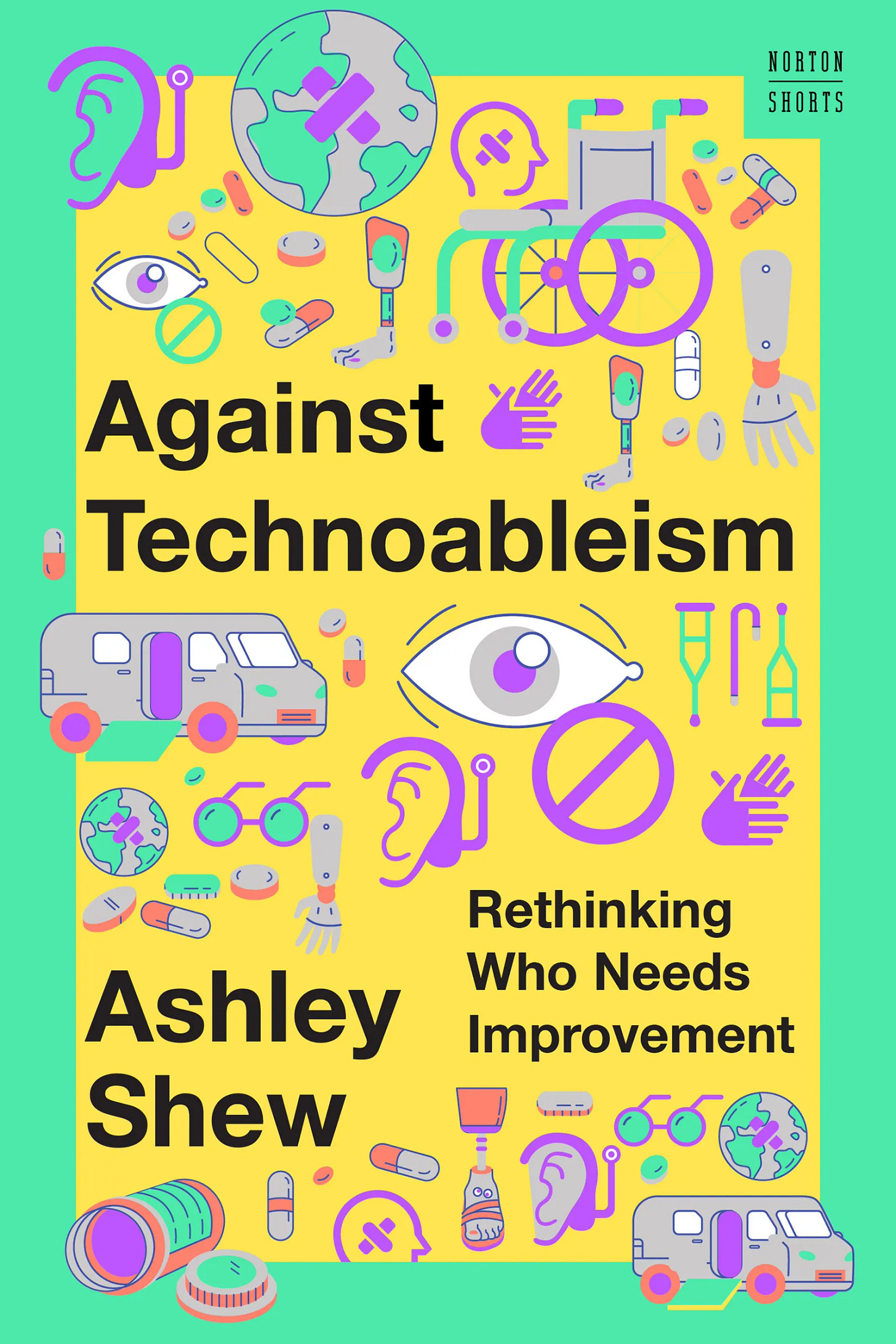Service resumed - The Accessible Link #14
I'm back.
Hello everyone,
I'm back. I appreciate your patience while I couldn't write this newsletter. I'm still adapting to my new life with severe heart failure, but thanks to the brilliant care of the NHS nurses and doctors and a lot of medication, I'm getting better, and I'm at home. I spent a week in intensive care and, after that, nearly two weeks at a heart ward.
Do you want to know what excellent teamwork looks like? Spend a week in ICU. It was so impressive to see how the nurses worked together, saving lives and providing care while totally putting the patients at the centre of their decisions whatever they did. They are the true heroes of our time. I was also impressed with all the tech they used to support the care.
So I hope I'm getting better in the next couple of months. It's definitely already interesting to manage two impairments at the same time. I know that this is pretty common. Disabled people can get other impairments and illnesses, too. Remember my newsletter text about the concept of visible and non-visible impairments and why I don’t like it? That’s now even more true. My heart currently bothers me far more than the fact that I can’t walk.
Also, thank you for the messages I’ve received after the short note that I can’t write this newsletter at the moment. Meanwhile, more than 300 readers have subscribed to this newsletter. It’s a pleasure to write it for you.
Some interesting links
An example of what happens if staff don't get refresher training or are poorly trained in general: Hidden cameras capture a passenger who uses a wheelchair struck by a hoist
You will soon be able to explore London Underground stations remotely before visiting them. That is a really good accessibility feature for many disabled people who want to travel confidently, want to check distances from the entrance to the platform or just want to know what to expect at a station: Google Street View is coming to London Underground stations
Wheelchair users on flights are passengers — not problems, says Canada's chief accessibility officer
Something to watch
This is Andreas Pöschek, product manager of Austria’s new sleeper train with level boarding.
It has quite an impressive accessible sleeper compartment with four beds, and it definitely shows what difference it makes to include disabled people in the development process.
There are even more pictures and a 360 view. https://www.nightjet.com/en/komfortkategorien/nightjet-neue-generation
Something else to watch
There is not much that disables more than the “Can’t do” attitude of some customer-facing staff to enable accessibility. You can have a shiny ramp and a wheelchair space in first class, but if an operating issue (train came in the wrong way around) meets the “Can’t do” people, this happens. It shows an impressive level of self-advocacy, but it shouldn’t be needed just to be able to board a train in 2023.
Something to read
Ashley Shaw's book "Against Technoablism" is a must-read for everyone who works with technological solutions and accessibility. This insightful book challenges the common belief that technology alone can "fix" disabled people. Instead, it urges the reader to listen, collaborate, and truly understand what disabled individuals need and want.
Ashley Shew, a bioethicist and professor, provides a compelling argument for a more inclusive approach. She explains compellingly that expensive technologies don't always improve lives and can, in fact, worsen the marginalisation of disabled people.
Something to learn
If you are hosting Zoom meetings, it's useful to know how to make them more accessible. Zoom has launched a 15-minute course where you learn about the accessibility features of the software and what to consider when planning the meeting. You even get a badge for LinkedIn at the end of the course.
Some final words
"We need to prepare for the disabled future, becoming more comfortable with other people’s disabilities, accepting the fact that we ourselves will eventually be disabled (if we aren’t already), learning to recognise and root out ableism—these are all moves toward building a better future for everyone." (Ashley Shew)The Accessible Link is a reader-supported publication. So, if you like what you’re reading, consider to become a paid subscriber or
Who is writing this newsletter?
I’m Christiane Link, and I improve the customer experience in aviation, transport, and travel. I worked as a journalist for over two decades and travelled extensively for business and leisure. I’m a wheelchair user. If you want to read more from me, follow me on LinkedIn, Twitter, Bluesky or Mastodon. You can also reply to this email if you want to contact me.




